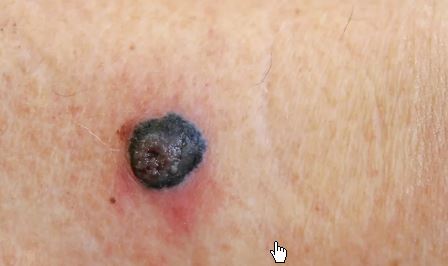World’s First Personalised mRNA Vaccine for Melanoma Undergoing Trials
A groundbreaking personalised mRNA vaccine for melanoma, the deadliest form of skin cancer, is currently undergoing Phase III clinical trials in the United Kingdom. The vaccine, developed by Moderna and Merck Sharp and Dohme (MSD), is designed to help a patient’s immune system recognise and eliminate remaining cancerous cells after surgical removal of the tumour.
How the Vaccine Works
- The vaccine, named mRNA-4157 (V940), is created to match the unique genetic signature of each patient’s tumour.
- It instructs the body to produce proteins or antibodies that attack markers (antigens) found exclusively on the patient’s cancer cells.
- The vaccine is administered alongside pembrolizumab (Keytruda), an immunotherapy drug that enhances the immune system’s ability to kill cancer cells.
Trial Details and Results
The University College London Hospitals (UCLH) is leading the UK part of the international trial, aiming to enroll 60-70 patients across eight centres.Patients eligible for the trial must have had their high-risk melanoma surgically removed within the last 12 weeks. Phase II trial data showed that patients with serious high-risk melanomas who received the vaccine alongside Keytruda were nearly 50% less likely to die or experience cancer recurrence after three years, compared to those who received only the drug.
Potential Impact and Future Applications
- Experts believe this personalised vaccine has the potential to cure melanoma and revolutionise cancer treatment.
- The vaccine is also being tested on other cancers, including lung, bladder, and kidney tumours.
- If successful, the treatment could offer a permanent cure for various types of cancer, significantly improving patient outcomes and survival rates.
Prevention and Early Detection
Protecting the skin from excessive sun exposure, using sunscreen, and avoiding tanning beds can help reduce the risk of melanoma. Regular self-examination of the skin and moles, as well as professional skin checks, can aid in early detection of melanoma. The ABCDE rule (Asymmetry, Border irregularity, Color variation, Diameter > 6mm, and Evolution of moles) is a helpful guide for identifying potentially cancerous moles.
About Melanoma Facts and Statistics
- Melanoma is a type of skin cancer that develops from melanocytes, the cells that produce the pigment melanin.
- It is the most dangerous form of skin cancer, accounting for the majority of skin cancer deaths.
- According to the World Health Organization (WHO), approximately 132,000 new cases of melanoma are diagnosed worldwide each year.
- Risk factors for melanoma include excessive exposure to UV radiation (from sunlight or tanning beds), fair skin, a high number of moles, and a family history of the disease.
As clinical trials progress and more data becomes available, these innovative therapies could offer renewed hope to patients battling life-threatening cancers, ultimately improving survival rates and quality of life.
Month: Current Affairs - April, 2024
Category: Science & Technology Current Affairs


